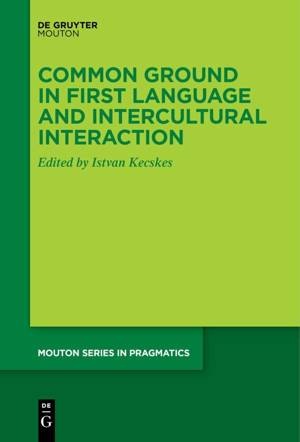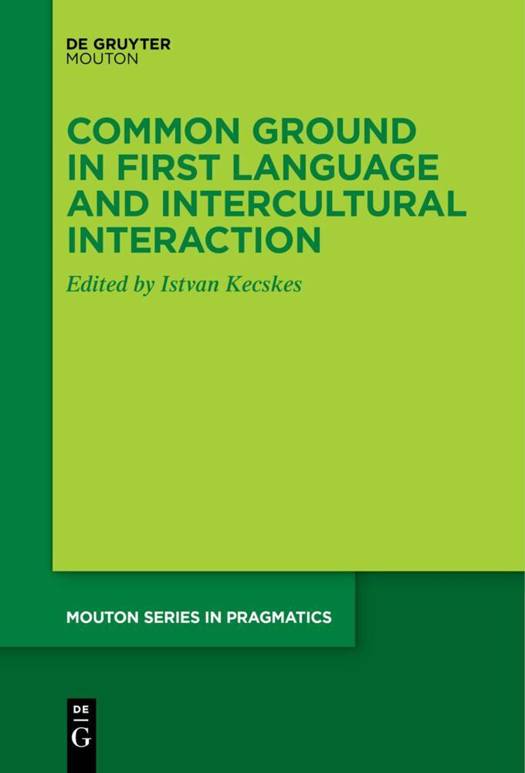
- Retrait gratuit dans votre magasin Club
- 7.000.000 titres dans notre catalogue
- Payer en toute sécurité
- Toujours un magasin près de chez vous
- Retrait gratuit dans votre magasin Club
- 7.000.0000 titres dans notre catalogue
- Payer en toute sécurité
- Toujours un magasin près de chez vous
Common Ground in First Language and Intercultural Interaction
Description
In recent years the traditional approach to common ground as a body of information shared between participants of a communicative process has been challenged. Taking into account not only L1 but also intercultural interactions and attempting to bring together the traditional view with the egocentrism-based view of cognitive psychologists, it has been argued that construction of common ground is a dynamic, emergent process. It is the convergence of the mental representation of shared knowledge that we activate, assumed mutual knowledge that we seek, and rapport as well as knowledge that we co-construct in the communicative process.
This dynamic understanding of common ground has been applied in many research projects addressing both L1 and intercultural interactions in recent years. As a result several new elements, aspects and interpretations of common ground have been identified. Some researchers came to view common ground as one component in a complex contextual information structure. Others, analyzing intercultural interactions, pointed out the dynamism of the interplay of core common ground and emergent common ground.
The book brings together researchers from different angles of pragmatics and communication to examine (i) what adjustments to the notion of common ground based on L1 communication should be made in the light of research in intercultural communication; (ii) what the relationship is between context, situation and common ground, and (iii) how relevant knowledge and content get selected for inclusion into core and emergent common ground.
Spécifications
Parties prenantes
- Editeur:
Contenu
- Nombre de pages :
- 347
- Langue:
- Anglais
- Collection :
- Tome:
- n° 26
Caractéristiques
- EAN:
- 9783111619620
- Date de parution :
- 04-11-24
- Format:
- Livre broché
- Format numérique:
- Trade paperback (VS)
- Dimensions :
- 156 mm x 234 mm
- Poids :
- 535 g

Les avis
Nous publions uniquement les avis qui respectent les conditions requises. Consultez nos conditions pour les avis.





